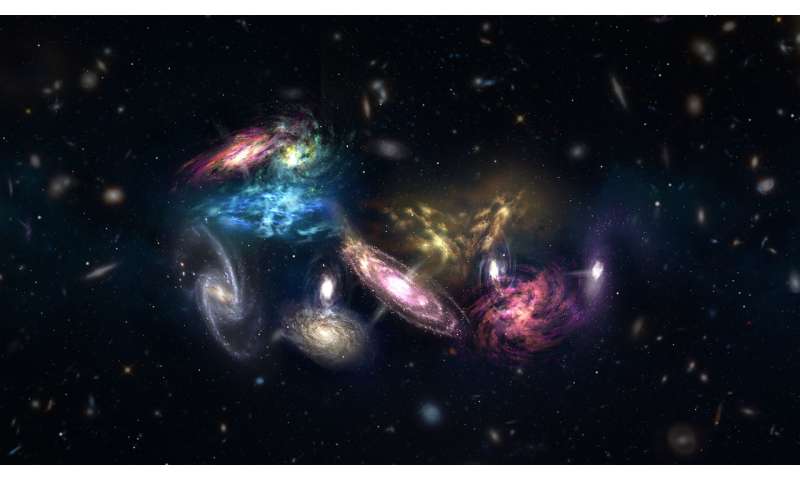Best of Last Week – A galaxy megamerger, world's oldest spider and dark chocolate improving vision

It was a good week for space science as an international team of astronomers announced that they had witnessed a galaxy mega-merger—the impending collision of 14 young, starbursting galaxies. Also, officials with the European Space Agency's Gaia mission announced that they had created the richest star map of our galaxy—and beyond. After 22 months of effort, the team produced a map that includes 1.7 billion stars and measurements for other celestial bodies.
And lunar scientists were reportedly shocked as NASA cut funding for the only moon rover. The Resource Prospector had been under development for over a decade and plans had called for it to be deployed to the moon by 2022.
In historical news, a team with members from across the U.S. found some possible answers to the question: Did the last ice age affect breastfeeding in Native Americans? They report the first evidence of selection on the human maternal-infant bond. Also, a large team of researchers from across the U.S. and one from the U.K. reported on evidence they found that showed how to hunt a giant sloth—according to ancient human footprints. The footprints left behind 10,000 years ago told the tale of early humans working together to take down the large creatures. And a team working in Germany found that the wooden Shigir idol is over twice as old as the Egyptian pyramids. The idol was found in a peat bog back in 1890 and has now been shown to be 11,500 years old. And another team, this one working in Australia, discovered the world's oldest spider in the Australian outback—a trapdoor who lived to be 43 years old.
In other news, a team at the University of Michigan announced that they had created organic solar cells that reached a record efficiency—they reported achieving 15 percent efficiency, which they claim would make solar power cheaper than conventional power sources. And a team of Australian and French researchers discovered how young children seem to run around all day without getting tired.
And finally, if you find that your vision tends to blur sometimes due to fatigue or other factors, you might want to pop a bit of chocolate into your mouth, as a team at the University of the Incarnate Word Rosenberg School of Optometry found that a bit of dark chocolate might sweeten your vision—at least for a little while.
© 2018 ScienceX